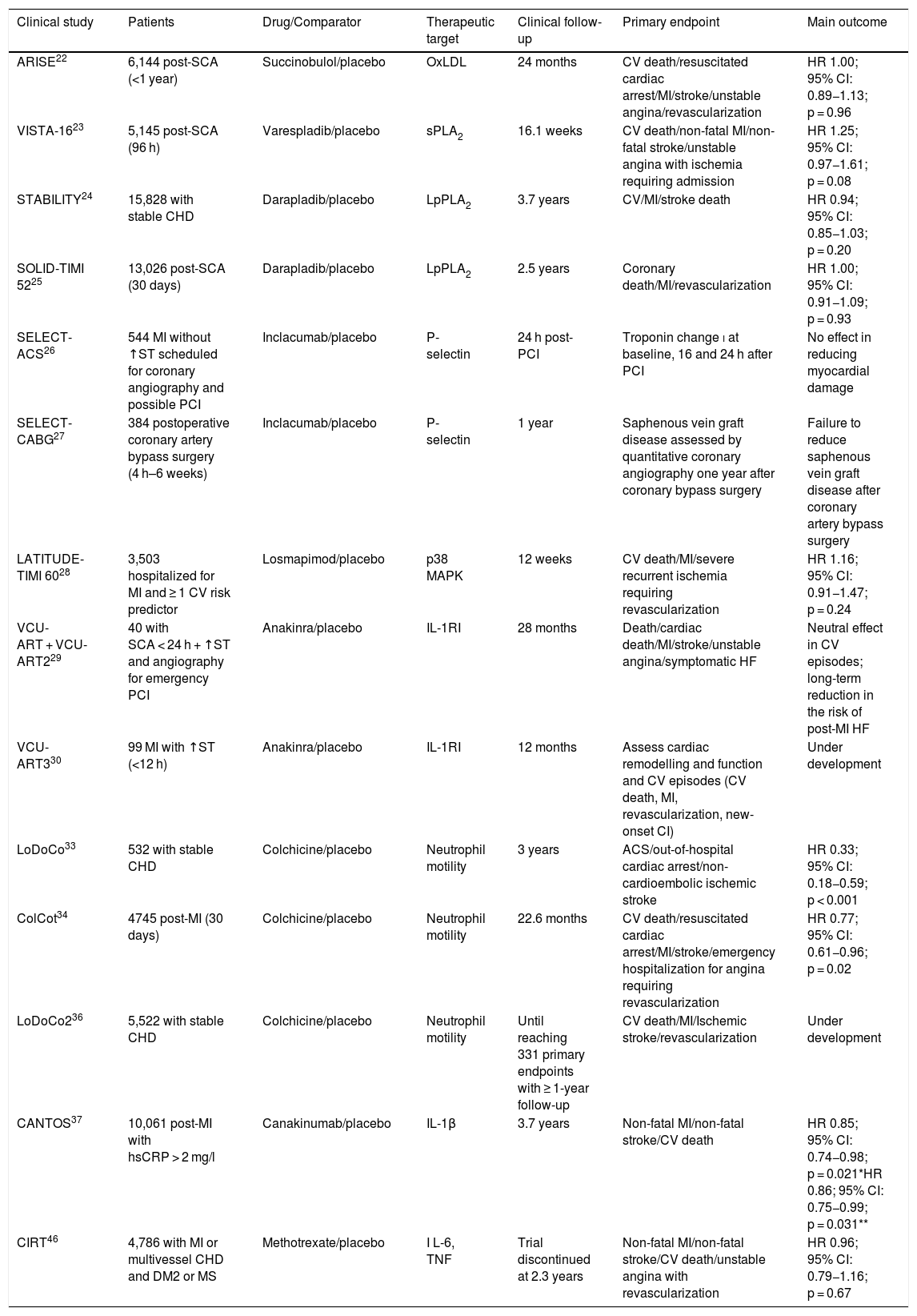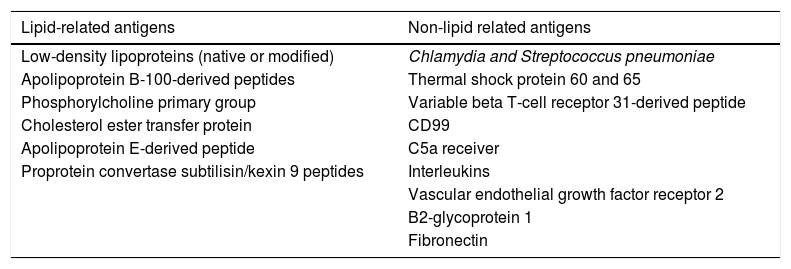The recognition of atherogenesis as an active process rather than a passive cholesterol storage disease has underlined key inflammatory mechanisms. Hence, innate and adaptive immune responses play an important role in the onset and progression of atherosclerosis. More recently, some clinical studies were designed to address the impact of anti-inflammatory intervention strategies in reducing risk of cardiovascular disease beyond the management of classic risk factors. Therefore, we review first the pathophysiological contribution of inflammation to atherosclerosis and the effect of lipid-lowering drugs on inflammatory biomarkers. Next, we address the effect of classic anti-inflammatory drugs, pharmacological therapies targeting specific inflammatory mediators and vaccines in cardiovascular prevention.
El reconocimiento de la aterogénesis como un proceso dinámico en vez de un depósito pasivo de colesterol ha subrayado la existencia de mecanismos inflamatorios claves. Así, la respuesta inmune, tanto innata como adaptativa, desempeña un papel importante en el inicio y la progresión de la aterosclerosis. Más recientemente, algunos estudios clínicos han sido diseñados para abordar el impacto de las estrategias de intervención antiinflamatoria en la reducción del riesgo de enfermedad cardiovascular más allá del control de los factores clásicos de riesgo. Por todo ello, revisamos en primer lugar la contribución fisiopatológica de la inflamación en la aterosclerosis y el efecto del tratamiento farmacológico hipolipidemiante en los marcadores de inflamación. A continuación, abordamos el efecto de los fármacos antiinflamatorios clásicos, de los tratamientos farmacológicos dirigidos a mediadores inflamatorios específicos y de las vacunas en la prevención cardiovascular.








